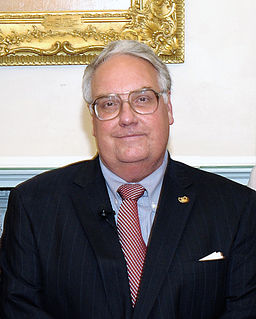A Quote by Rafael Correa
The workforce in Latin America was treated as a vulgar instrument for capital accumulation.
Quote Topics
Related Quotes
What we've undergone in recent decades worldwide has been totally insane, and all of this is a result of capitalism. The workforce in Latin America was treated as a vulgar instrument for capital accumulation. Mechanisms of exploitation were imposed, such as outsourcing, labor mediation, and the like.The results are plain to see: greater inequality in Latin America; unemployment is higher than in previous decades; we haven't resolved the problem of poverty; we've lost a great deal of sovereignty.
If it is an element of liberation for Latin America, I believe that it should have demonstrated that. Until now, I have not been aware of any such demonstration. The IMF performs an entirely different function: precisely that of ensuring that capital based outside of Latin America controls all of Latin America.
Remember that accumulated knowledge, like accumulated capital, increases at compound interest: but it differs from the accumulation of capital in this; that the increase of knowledge produces a more rapid rate of progress, whilst the accumulation of capital leads to a lower rate of interest. Capital thus checks it own accumulation: knowledge thus accelerates its own advance. Each generation, therefore, to deserve comparison with its predecessor, is bound to add much more largely to the common stock than that which it immediately succeeds.
What sets imperialism of the capitalist sort apart from other conceptions of empire is that it is the capitalist logic that typically dominates, though ... there are times in which the territorial logic comes to the fore. But this then poses a crucial question: how can the territorial logics of power, which tend to be awkwardly fixed in space, respond to the open spatial dynamics of endless capital accumulation? And what does endless capital accumulation imply for the territorial logics of power?
The concept of unlimited expansion that alone can fulfill the hope for unlimited accumulation of capital, and brings about the aimless accumulation of power, makes the foundation of new political bodies - which up to the era of imperialism always had been the upshot of conquest - well-nigh impossible.































